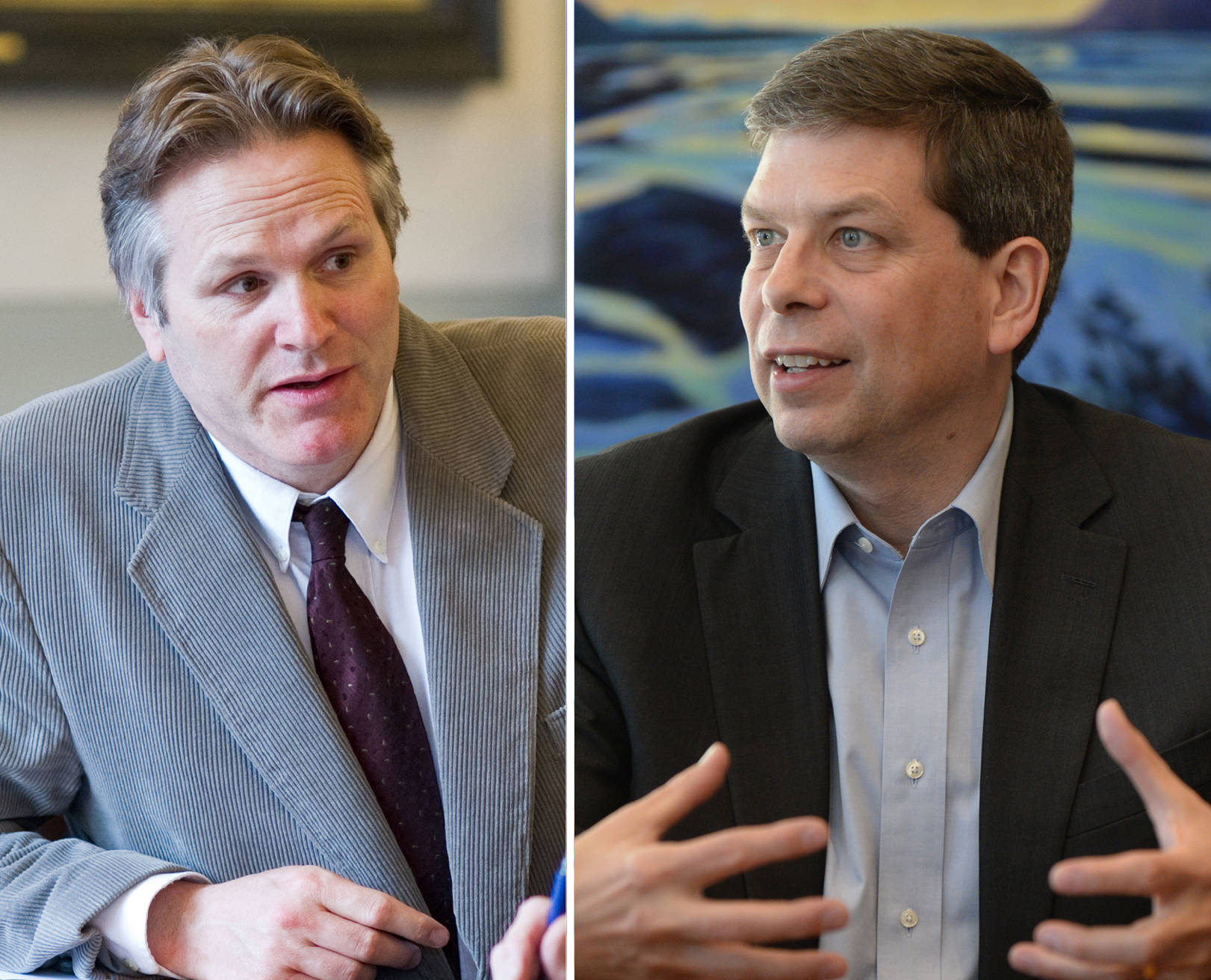Ninety minutes after incumbent independent Gov. Bill Walker announced his withdrawal from the 2018 general election on Oct. 20, Democratic candidate Mark Begich and Republican Mike Dunleavy faced each other in the first head-to-head debate of their campaign.
Begich praised Walker’s decision. Dunleavy didn’t say the incumbent’s name. Both agreed that the result of the race will affect the course of Alaska for decades.
“That’s what this campaign is going to be about: What’s Alaska going to look like in the future?” Dunleavy said, shortly after moderators at the Alaska Federation of Natives debate wheeled a third chair off the stage.
At the Friday afternoon event, the two candidates most sharply differed on health care issues. Dunleavy said he believes Medicaid providers are being overpaid and that the state should “look at some private approaches, some market approaches” for delivering health care in Alaska.
Begich, who cast a key vote in favor of the Affordable Care Act as a member of the U.S. Senate, said he believes the Medicaid system delivers results but is burdened by paperwork. He suggested efficiencies are the answer and suggested that if doctors, clinics and hospitals sign agreements to treat Medicaid patients, the state could eliminate some of the paperwork currently involved in treatment.
Begich garnered the lion’s share of applause during the debate, which took place at the Dena’ina Center during the annual AFN conference. Fewer than two hours before, Walker strongly endorsed Begich as his preferred candidate.
“Alaskans deserve a choice other than Mike Dunleavy,” Walker said.
Opening his remarks, Begich called Walker’s withdrawal an “amazing, courageous action.”
Dunleavy reminded debate spectators that his wife is Alaska Native and that he lived in rural Alaska as a teacher and administrator for years before moving to the Matanuska-Susitna Borough.
Begich and Dunleavy each said they do not support increasing the minimum enrollment needed for schools to receive state support. The loss of state support usually results in a school closure, and many village schools have struggled to meet the minimum.
Dunleavy said that “there is a narrative that I want to close down rural schools.”
That’s not true, he said, explaining that he would like to see an expansion of high schools in hub communities such as Bethel, Kotzebue and Utqiagvik in order to provide a wider variety of classes.
The two candidates also agreed that they would not reappropriate money from the state’s Power-Cost Equalization fund to balance the state budget. Dunleavy in 2017 had proposed using PCE money, normally used to subsidize rural energy prices, to help balance the state deficit. The deficit is much smaller today.
Both candidates acknowledged that Walker’s departure changes the scope of the race with little time remaining before Election Day.
“We have just a few weeks, two and a half, and every vote matters,” Begich said.
Dunleavy added, “There is only 18 days left, so don’t be surprised if there’s more surprises along the way.”
Libertarian candidate Billy Toien is also on the ballot but did not appear at the debate.
• Contact reporter James Brooks at jbrooks@juneauempire.com or 523-2258.



